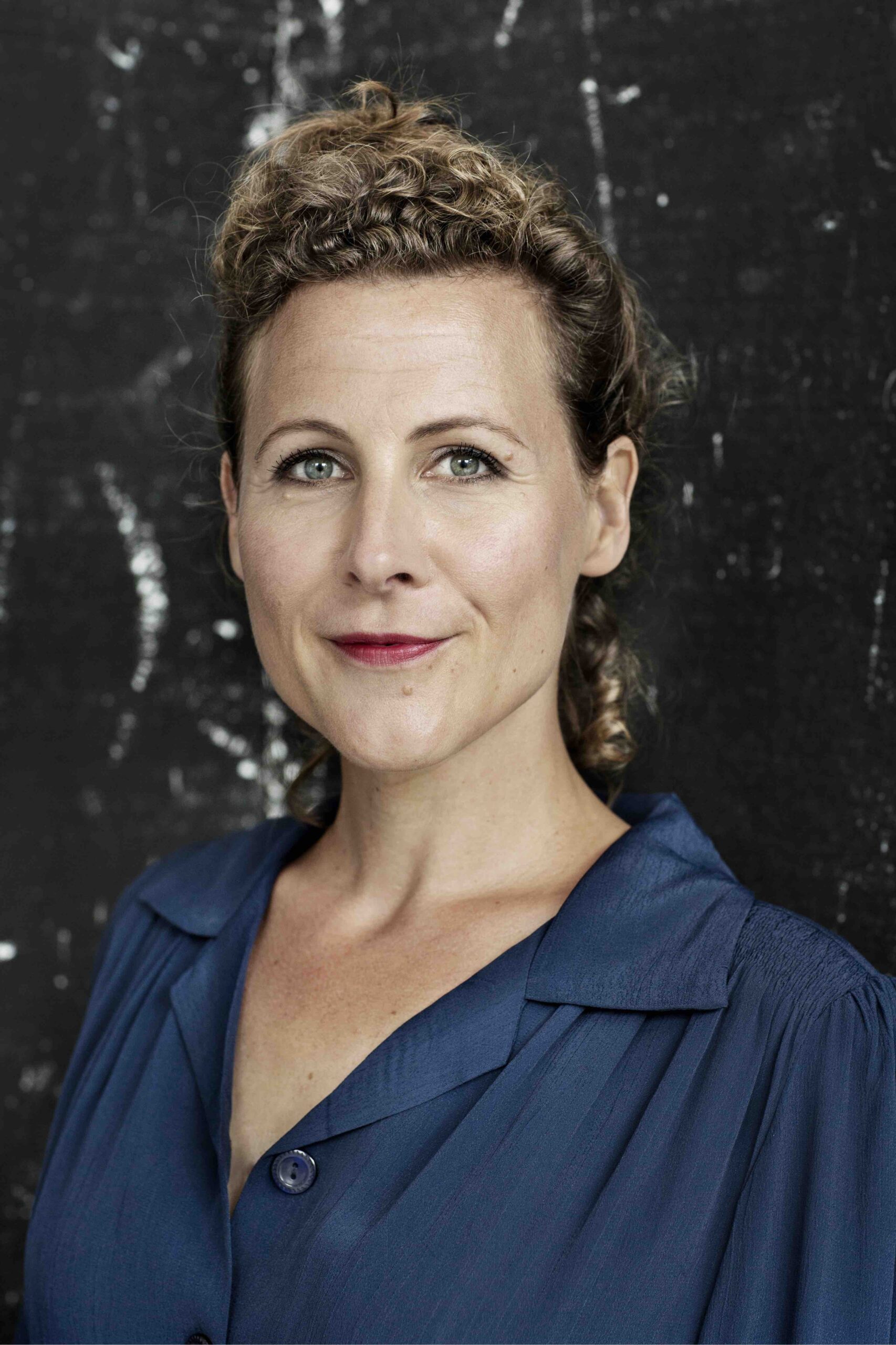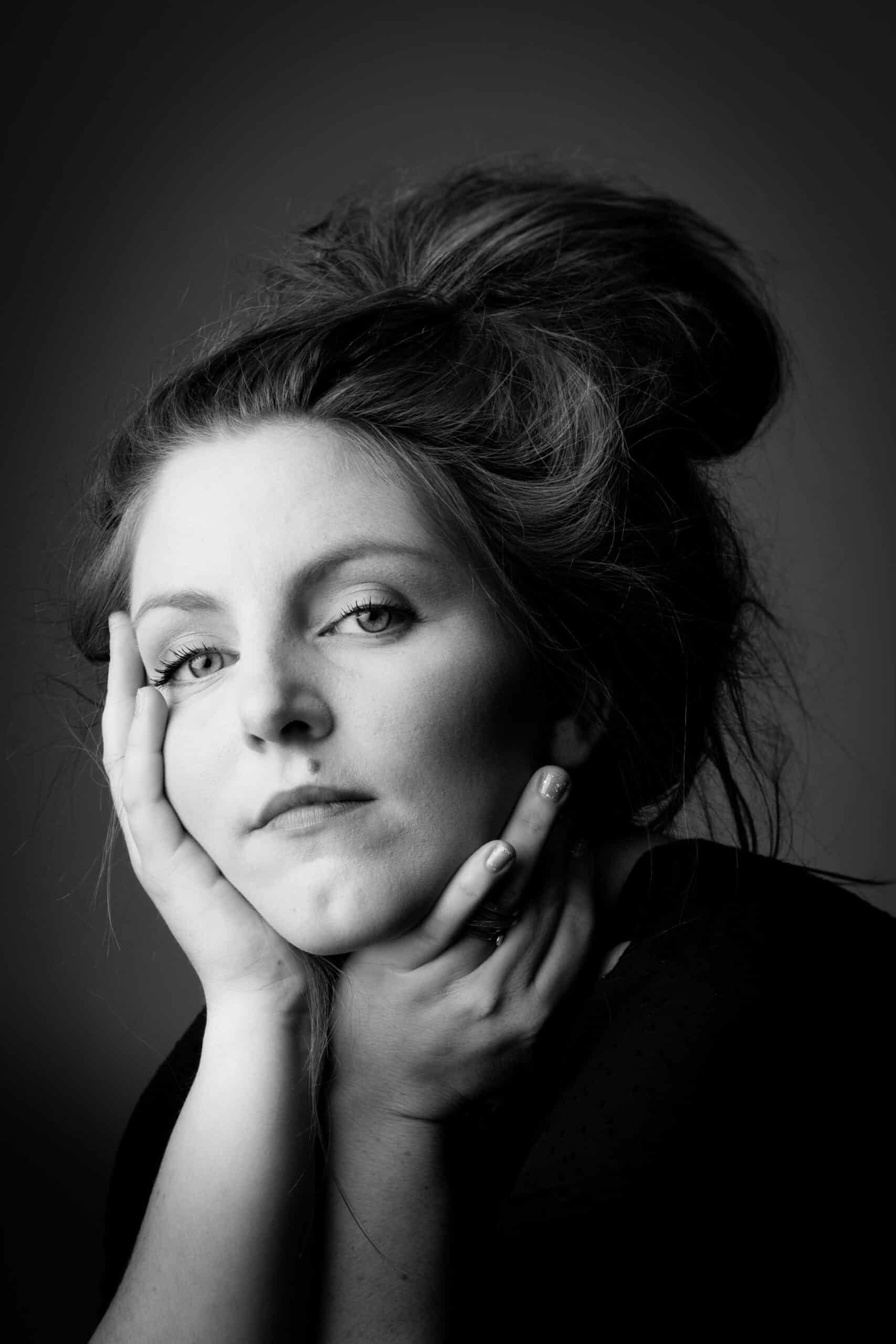Writing in the Pressure Cooker: The Writing Course as a Springboard
The misconception of writing as a matter of divine talent is supplanted by the realisation that writing is a craft, a skill you can learn. But what exactly do students get out of their writing courses? Authors Lize Spit, Ester Naomi Perquin, Jante Wortel and Corine Hartman share their experiences. ‘You have to be prepared to let go of anything you write.’
“I always wanted to write a book. So I looked for a course,” says Lize Spit (b. 1988), who published the novels Het smelt (The Melting, 2016) and Ik ben er niet (I’m Not Here, 2020). “I picked writing at the RITCS in Brussels because a teacher at the open day said that – despite the focus on audiovisual arts – you could graduate in all genres, not just screen writing. If I hadn’t passed the admissions test, I’d have gone to the Conservatoire in Antwerp. They also have a good writing course.”
“I had an idea of doing something with photography,” recounts Jante Wortel (b. 1996), who debuted two years ago with Weerlicht (Lightning). “When I started writing in secondary school, I looked for encouragement from my Dutch teacher by asking about writing courses. As far as I’m concerned there were two that counted: Image & Language at the Rietveld Academy and Creative Writing at ArtEZ. I applied to the latter, because it looked really good to me. I was 17 at the point when I started the four-year programme in Arnhem.”
 Jante Wortel: 'Without a degree it’s hard to stand out as a debut author. Somewhere like ArtEZ you’re also building a network, with the teachers, during your internship.'
Jante Wortel: 'Without a degree it’s hard to stand out as a debut author. Somewhere like ArtEZ you’re also building a network, with the teachers, during your internship.'© Toine Donk
In search of a literary environment
Such stories were once the exception. A quarter of a century ago, there were hardly any vocational courses for writers in the Low Countries. When the poet Ester Naomi Perquin (b. 1980) was faced with the same choice as Spit and Wortel after secondary school, all that was available was Writing for Performance at HKU University of the Arts in Utrecht. When she was rejected her only option was training to be a teacher of Dutch.
“I was expelled from that course after half a year, because one of the teachers noticed I only wanted to write. Becoming a teacher was just a safety net for me. ‘And,’ in his legendary words, ‘we have quite enough teachers for whom teaching is a safety net.’ So then I turned to the Schrijversvakschool in Amsterdam. They offered a four-year course, but it was a private, part-time course. I didn’t have funding so I had to look for a job.”
 Ester Naomi Perquin: 'No 16-year-old writes a masterpiece. The question isn’t whether you can learn it, but how.'
Ester Naomi Perquin: 'No 16-year-old writes a masterpiece. The question isn’t whether you can learn it, but how.'© Lenny Oosterwijk
At the time there was a preconception that you couldn’t learn to write. Writing was something you did, with or without talent. So unless you wanted to write text as the raw material for a performance or TV series, you could really only learn it at the level of a short course at a local cultural education centre. From 1984 the Schrijversvakschool attempted to combat that prevailing opinion, but their alumni often weren’t taken entirely seriously.
“Really stupid,” Perquin thought even then, the idea that writing isn’t a craft that can be learnt. “No 16-year-old writes a masterpiece. The question isn’t whether you can learn it, but how. By reading a lot? By talking with others? By following a regular, in-person course? I chose the latter because I read lots, but didn’t know anyone in Zeeland. I didn’t have any form of access to the literary environment I longed for there.”
In 2024 the situation is completely different. The number of courses has increased substantially. Vocational courses such as those followed by Spit and Wortel, or semi-professional courses, such as the Schrijversacademie in Antwerp – a course which Spit also followed after attending the RITCS (although she didn’t finish it). Graduates not only regularly publish, they reach plenty of readers and win prizes too. Or they’re invited to contribute the book week gift book in the Netherlands, traditionally the greatest honour for a literary writer, as Spit discovered. And what fellow-writer would badmouth trained writers these days?
“Without a degree it’s hard to stand out as a debut author,” Wortel ventures. “Somewhere like ArtEZ you’re also building a network. With the teachers, during your internship. Publishers also really pay attention to what’s happening in the degree courses. And you find yourself in a stimulating environment: if there’s a writing competition, half the class participates. That makes you want to join in too, whereas otherwise I might not have found the courage, worrying that my work wouldn’t be good enough.”
Recognising clichés
The question then is: what do writing courses give their students? Pearls of wisdom such as: show, don’t tell, kill your darlings? Tips such as: begin in media res, build up your characters with expressive details, choose an original subject? Guidelines such as: use active sentences, be sure to vary the sentence length? In other words, do they offer the same advice anyone can find in the ever expanding library of books about writing, or do the courses explicitly have more to offer?
Lize Spit: 'You learn in three years what would otherwise take you thirty years'
“Of course you learn the tricks of the trade too,” remembers thriller writer Corine Hartman (b. 1964), who attended the Schrijversvakschool at the same time as Perquin and has since published 25 titles through Karakter and De Bezige Bij. “The art of omission, for example. It’s no use just thinking you should never underestimate the reader by explaining too much, you need to put that into practice. It was only through the course that I discovered, contrary to my own opinion, that I actually did over-explain. Only when that was pointed out to me was I able to apply it.”
It’s handy to learn the basics in the pressure cooker of a degree, Spit believes. “Rules such as: don’t use too many in-between words – almost, then, like. Teachers really drill it into you that you should delete those words, so that you develop the reflex at the start of your career. Or recognising clichés. Once you have that skill, you never have to write them again. It teaches you in three years what would otherwise take you thirty to learn.”
 Lize Spit: 'It doesn’t matter at all if some students are less talented and hand in bad stories. On the contrary, that’s what you learn the most from.'
Lize Spit: 'It doesn’t matter at all if some students are less talented and hand in bad stories. On the contrary, that’s what you learn the most from.'© Lieve Blancquaert
“There’s ‘something’ in the work of everyone they admit,” says Wortel. “When I last found an old story of mine, from before the course, I was surprised to recognise my style and structure. The DNA of my work was always there. On the course I just learned that this hadn’t come into its own. What I was trying to do wasn’t working. With all the techniques I was offered and the insights I gained, I learned how to make a text work.”
It’s also not as simple as it seems to apply the golden rules of writing. “A true story is no excuse, that rule is so famous it’s even become a cliché in itself,” says Perquin. “But to a certain extent you can learn it. With the exception of the absolute masters, you always need an outsider for that. Only when my editor says, ‘that passage about the dead rabbit is sentimental rubbish,’ do I see it. Fortunately I can then easily side with the text and delete it.”
Write, write, write
So it’s mainly about doing it. Write, write and carry on writing. “Students tend to see talent as a magic potion,” Wortel recalls a teacher once telling the class. “They’re cautious with it, afraid it will run out. But talent is more like a muscle that you develop through daily training. It was a shame, though, that there were always so many assignments that we hardly had time to stop and think what was or wasn’t good.”
Jante Wortel: 'Talent is like a muscle that you develop through daily training'
Spit therefore continued her education at the Schrijversacademie. She wanted to be able to practise more. “In my day the focus was very much on screenwriting. There was lots of attention to theory: how does a conflict work, what’s the three-act structure. And the aim was to make a kind of technical working document that could be filmed. It wasn’t at all about style, for example. So I had the feeling I wasn’t finished learning yet.”
All courses require their students to practise as many genres as possible in the first year. Prose, poetry, theatre, screenwriting, essays… the broader the better. Only for the final project do students write a longer piece under supervision in the genre of their choice. The same is currently also true of the RITCS, which has developed to become a general writing course and where Spit now teaches.
Hartman considers that requirement “really worthwhile”. “You pick something up from everything. Even poetry. In the end I opted for screenwriting, because they said that was the most difficult. After all, you can’t use any internal monologue. Everything you write, you have to be able to see or hear. That absolutely influenced my thrillers. I often read in reviews that they’re very filmic: you can picture the scenes playing out in front of you.”
 Corine Hartman: 'It was only through the course that I discovered, contrary to my own opinion, that I actually did over-explain.'
Corine Hartman: 'It was only through the course that I discovered, contrary to my own opinion, that I actually did over-explain.'© Stan Bouman
Artistic study
Nevertheless one thing is more important than writing: reflecting on what you’ve written. “There are so many clichés,” Spit remarks. “At all levels: words, phrases, but also themes. How do you recognise those? When three out of five students in the class use the same image, for instance. That’s why it doesn’t matter at all if some students are less talented and hand in bad stories. On the contrary, that’s what you learn the most from.”
“Discussing each other’s stories is like listening in on a conversation that a writer has with their editor behind closed doors,” Perquin tells me. “You hear precisely what others are doing and what the teacher – at the Schrijversvakschool always a publishing author – thinks of it: too long here, skipping from one subject to another there, why don’t you delete that passage, isn’t this explanation superfluous… Normally you’d never get to be present for that conversation.”
Existing texts are also analysed. “You do that in secondary school too, but then it’s more about looking at what the writer means,” says Spit. “Never about what makes the text good. It was only on the course that I did that, and did it so much that I can no longer immerse myself, carefree, in a book. As I read I’m always looking for the answers to very technical questions: what’s the structure? How original are those images?”
Perquin: 'Discussing each other’s stories is like listening in on a conversation that a writer has with their editor behind closed doors'
Certainly if – as tends to be the norm rather than the rule nowadays – students come fresh from secondary school, it’s extremely worthwhile. “I was 17!” Wortel exclaims. “I was still in the Carry Slee phase, as it were. And suddenly along came The Laws by Connie Palmen, Peter Buwalda, The Virgin Suicides. Only at ArtEZ did I learn what literature I considered good, what did and didn’t work for me, and how I wanted to relate to my own work there.”
The analysis even goes so far that she had to finish her course with what is currently known as an “artistic study”. Wortel compared Karl Ove Knausgård’s autobiographical cycle to Boudewijn Büch’s fictitious but realistically presented De kleine blonde dood (Little Blond Death) – in order to put into words the way fact and fiction can be mixed to achieve optimal ‘realism’. For her debut she made grateful use of that.
It's only about the text
It’s essential that an aspiring writer learn from reflection. Only those who can incorporate criticism into their work can make it. “Of the sixteen or so students I started out with,” Hartman recounts, “only three achieved a diploma, including Ester and myself. Some dropped out because they really only began the course to hear how good they already were. A crazy mindset. You won’t learn anything that way.”
“You can have all kinds of motivations to write,” Perquin adds. “The shiny cover photo you’ll have. Or your family someday saying, we always underestimated you. But some motivations work better than others. You have to realise it’s not about you as a person, but entirely and exclusively about the text. Does it work? If not, how do you get it to have the intended effect?”
Corine Hartman: 'I’ve seen lots of students who were so convinced of their own talent that they didn’t pick anything up'
“I’ve also seen lots of students who were so convinced of their own talent that they didn’t pick anything up,” Spit adds. “You have to be prepared to let go of anything you write. Some students are so attached to their clichés that they might be capable of writing well, but they’ll never be able to make it their profession. Because clichés become clichés for a reason: there are already enough of those kinds of texts. If you want to make a living from writing, you have to add something new.”
There’s more than writing books
Courses devote increasing attention to the professional practice of the writer. Around the turn of the century that didn’t come into it. The Schrijversvakschool largely attracted people in their 30s and 40s. People like Hartman, who already had a job to fall back on, in Hartman’s case, her own advertising agency. She designed brochures, flyers, company magazines and such like and increasingly also did copywriting for them.
“I know ab-so-lute-ly nothing,” Perquin reminisces. “My graduation project was my debut: Servetten halfstok (Napkins at half-mast), published by Van Oorschot. And then suddenly everything came my way – readings, prizes – I learned from them how everything worked.” Hartman had a similar experience: “After graduating I bought a weighty tome that explained how the publishing process works. There were lots of addresses in it too. Fortunately it helped that I’d been a self-employed entrepreneur.”
Perquin: 'You have to realise it’s not about you as a person, but entirely and exclusively about the text. Does it work?'
The current generation, on the other hand, are primed for a professional career. “As early as the first week, a teacher said that anyone expecting to get rich from writing had better leave,” Wortel tells me. “But ArtEZ actively provides guidance for making a living from writing, if you want to at least. I actually made the conscious choice to get a part-time job, so that I can work in peace on my own projects alongside it.”
That guidance particularly focuses on raising awareness that there is more out there than writing books. You can also produce presentations or podcasts. Or you can use your knowledge as a programme coordinator for a literary festival. They do that – at the RITCS as well – by encouraging their writers to work together with students of other disciplines: from theatre directors to dancers, and to do internships. For instance Wortel was on the project team when the Netherlands and Flanders were Guest of Honour at Frankfurt Book Fair in 2016.
And that brings us to the ending of the stories we started out with – given interest and ambition, a career as an author follows quite naturally from the course. Sometimes exclusively as a writer of books, like Spit, sometimes with a broader range of practice. For instance this spring Wortel went on stage with fellow author Corinne Heyrman (b. 1994) with a performance on the reception of their autobiographical novels. Typical for someone who has been through ArtEZ and knows how a writer can achieve a career? Absolutely.







